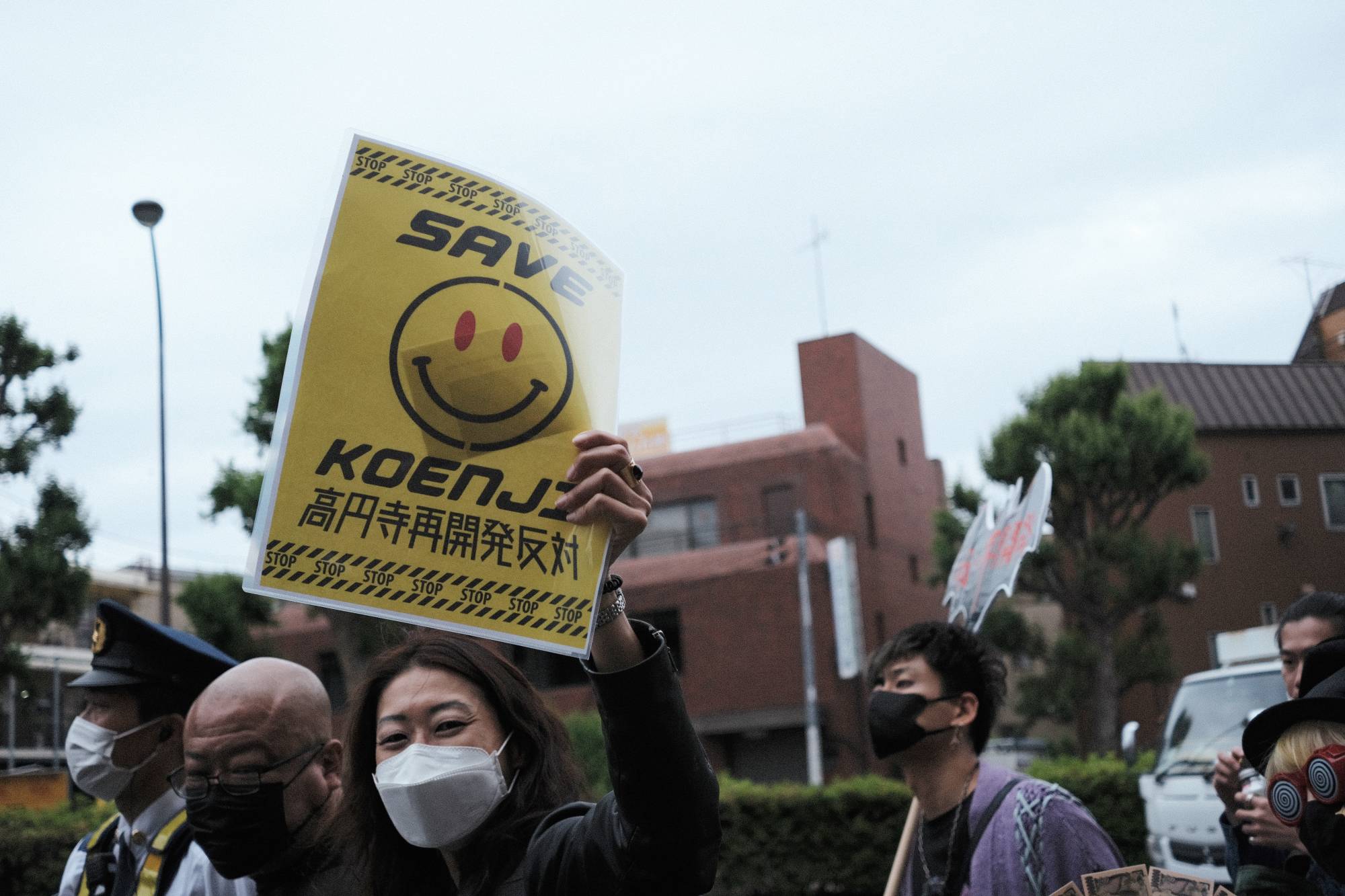On the afternoon of Sunday, May 15, hundreds of protesters gathered in the streets of Koenji, a neighborhood west of Shinjuku, Tokyo. For about three hours, these protesters — hippies, punks, shopkeepers and salarymen alike — walked and danced behind flatbed trucks equipped with large speakers from which local bands and DJs played songs and repeated the protest’s slogan: “We don’t need gentrification.”
The third such anti-gentrification protest in Koenji since 2018 (and the first since the COVID-19 pandemic), the May 15 event was organized by a confederation of local business owners and Koenji denizens aiming to stave off the kind of urban redevelopment that has, in their view, changed the local culture of neighborhoods throughout the city.
Koenji, two stops west of Shinjuku on the JR Chuo Line, earned its reputation as a bohemian hotspot in the 1960s, when folk rock stars like Takuro Yoshida (who even wrote a song called “Koenji”) and Kosetsu Minami moved to the area. During this time, Koenji was also home to music cafes where customers could go to hear the newest rare and imported records. From the mid-1970s to the early ’90s, especially during Japan’s so-called “band boom,” several live music venues opened throughout Koenji, offering a home to indie bands specializing in folk, psychedelic, punk and other forms of rock. Meanwhile, its narrow, maze-like shopping streets filled up with record stores, bookshops, used clothing stores, bars and restaurants and other eclectic, independently owned offerings.



















With your current subscription plan you can comment on stories. However, before writing your first comment, please create a display name in the Profile section of your subscriber account page.